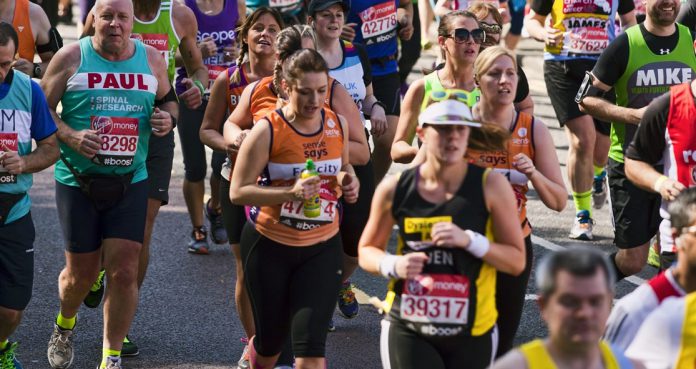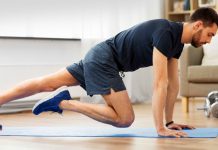As age progresses, the arteries or blood vessels tend to get stiff. And mild to moderate aerobic exercise could reduce this arterial pathophysiology.
Arterial stiffening is one of the key factors of the aging process, which is considered a key predictor of life-threatening cardiovascular events.
A new study, published in the Journal of the American College of Cardiology, has suggested that running a marathon could help improve your cardiovascular health by reducing arterial stiffening.
Researchers looked at 138 people who ran in the 2016 and 2017 London Marathons. Nobody had completed a marathon before and had any significant medical history of heart disease.
The participants, average age 37 years, were running at least 2 hours a week before the study.
At the beginning of the study, they were advised to follow the marathon’s Beginner’s Training Plan, which consists of about three runs a week for 17 weeks, with the weekly exercise becoming more intense as the weeks passed.
Before the marathon training, the researchers measured their blood pressure and aortic stiffness. They compared the measurements from before and after the race.
They found that there was a significant reduction in the participants’ blood pressure and aortic, noting that the “changes in aortic stiffness were equivalent to a 4-year decrease in vascular age.”
Senior study author Dr. Charlotte Manisty said, “Our study shows it is possible to reverse the consequences of aging on our blood vessels with real-world exercise in just 6 months.”
“These benefits were observed in overall healthy individuals across a broad age range and their marathon times are suggestive of achievable exercise training in novice participants,” she added.
People with high blood pressure and greater arterial stiffness could benefit even more from this type of aerobic exercise; however, more studies are needed to prove this theory.
The researchers explained along with aerobic exercises, people should choose a healthy lifestyle by eating a well-balanced diet and getting adequate sleep. Nevertheless, the findings highlight “the importance of lifestyle modifications to slow the risks associated with aging, especially as it appears to never be too late as evidenced by our older, slower runners,” Dr. Manisty concluded.























